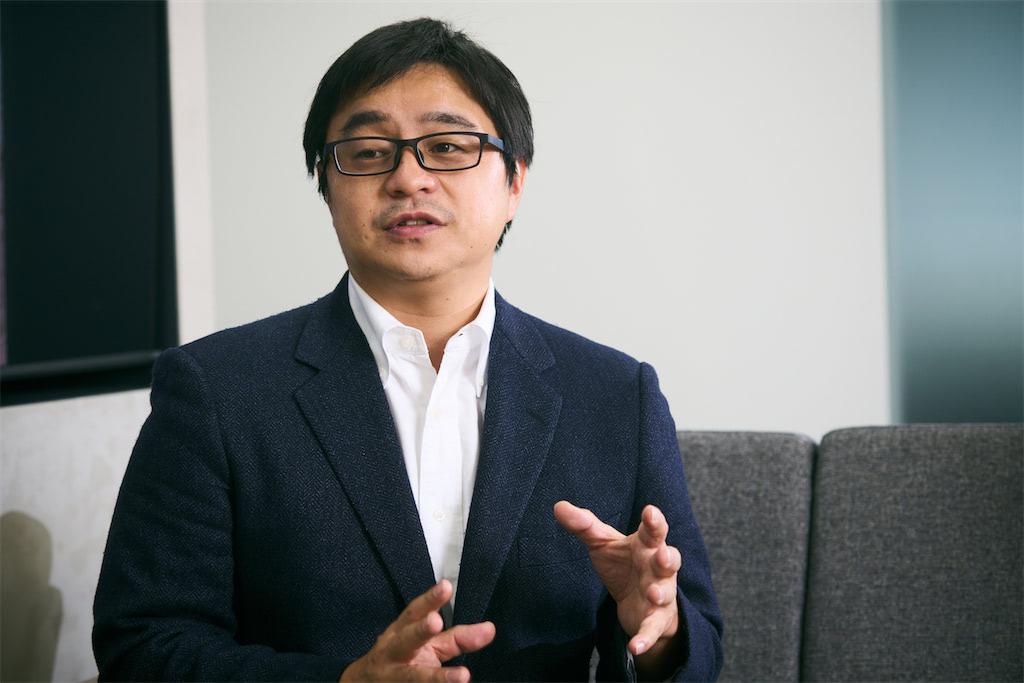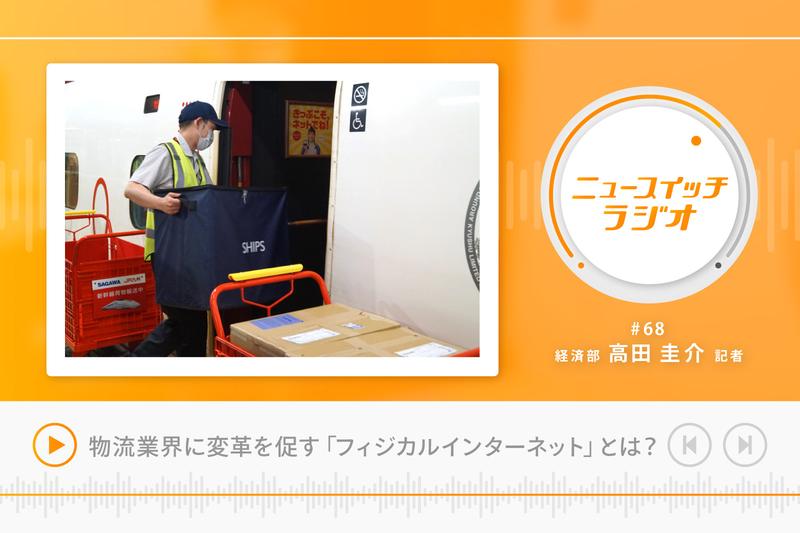Forbes JAPAN BrandVoice Studio
The Japanese version of an economic magazine that is loved by 8 million people in 38 countries around the world
PR articlefollow us
Safie has won the No. 1 share in the area of cloud recording services (according to Techno System Research), and Ryuhei Satoshima, CEO of the company, also ranked No. 1 in our magazine's "Japanese Entrepreneur Ranking 2021". The company, which was listed on the TSE Mothers at the end of September, is preparing a data charter that regulates privacy and how to handle data. Sado Island and Kazuma Morimoto, director and CTO of the company's development headquarters, invited Tatsuhiko Yamamoto, a professor at Keio University Law School, who is a member of the company's expert council, to discuss privacy governance and data governance.
Preventing information leakage from network cameras is the starting point of our founding
Ryuhei Sadoshima (Sado Island): I first met Dr. Yamamoto when he was introduced to Mr. Shoichiro Iwata, the founder of ASKUL, who is requesting an outside director of the Company. When I participated in the study session and explained our business, I received a comment saying, "This is the service that requires the most privacy consideration I have ever heard." (Laughs) Tatsuhiko Yamamoto (below) , Yamamoto): Globally, face recognition technology is moving in the direction of regulation. Since 2019, the cities of San Francisco and Portland in the United States have been banned from use by government authorities and public facilities by private businesses. There are also regulatory movements at the state level. In the United States, where racial discrimination is a particular concern, there are strong concerns about false arrests due to the low awareness of blacks. Even in Europe, there is GDPR (EU General Data Protection Regulation), and biometric data for face recognition is regarded as sensitive information. In Japan, the rules regarding face recognition technology are still unclear, but there is a tendency to emphasize movements in Europe and the United States, so I was shocked by Mr. Safie's service (laughs). However, when I talked with Mr. Sado Island, my impression changed when I was able to convey my desire to think seriously about privacy governance and data governance. The Japanese company's view of privacy is rather defense. It is said that data protection is important, but the focus is on "how to prevent leakage". While there are many companies that respond passively, Mr. Safie is rather active, and I feel that he is thinking of making privacy protection efforts one of the strong points. Sado Island: Privacy protection was originally the founding philosophy. Network cameras have become widespread because of the ease of use that data can be obtained by accessing the IP address inside the camera, but there is a risk of information leakage. Therefore, in consideration of network security, the camera must be connected to the Internet, but many people do not know it. As a result, cameras with insufficient security are cracked and closed images are released on the Internet all over the world. From the perspective of the Internet society, it is an extremely vulnerable device. However, I witnessed the inconvenient truth that security assurance is not the responsibility of the manufacturer, but the self-responsibility of the user, and I felt that this was a social issue. In order to provide a cloud recording service that anyone can easily use, the idea of creating a service that guarantees security is the starting point of our founding. Kazuma Morimoto (hereinafter referred to as Morimoto): Conventional IP cameras have a structure that allows anyone to access the camera, which is the cause of being targeted by attackers such as crackers. Our products are designed to operate only when the camera accesses the cloud. The footage is stored in the cloud and the camera acts as a complete client, so it cannot be attacked by a third party. Sado Island: Safie-compatible cameras will be directly connected to our cloud, depending on Safie's camera OS. It's the opposite of the conventional network camera, but it's very safe from the customer's point of view. Nowadays, even in personal computers, the OS is running on the Internet, and the concept of device-dependent operating systems is changing. Our products have very light software inside the camera, which is cloud driven and enables secure use. If you focus on user-friendliness, the logic of the manufacturer or vendor is irrelevant. The idea is to create a new OS, and that is the platform we think of.Tatsuhiko Yamamoto Professor, Keio University Law SchoolTo be able to propose to the government ahead of the enactment of laws and regulations
Yamamoto: While being a startup, Mr. Safie is also working on creating a data charter that defines privacy and how to handle data. I think this attitude can be highly evaluated. Moreover, the words "basic human rights" and "democracy" that are not included in the charter of ordinary companies are included. It's not a final version yet, but I feel that it's cutting-edge to go so far. I hope these companies will lead the rule making in Japan. Sado Island: In the cloud camera usage scene, not only crime prevention but also business improvement and marketing, and use cases are expanding steadily. Of course, it is necessary to operate according to the IoT guidelines and rules according to the type of industry and purpose, but at present, I think that various rules have crossed over. For example, when using the face recognition entry / exit system, how should the guest's face information be handled, is it better to wear a wearable camera and walk around the construction site or in the city to improve operations? There are many cases where new rules must be considered from both the "convenience" and "security" axes. We cannot change the conventional framework if we take all the challenges of rule-making at our customers' own risk. On the other hand, if it is left to the government, there is a possibility that the regulation will focus on risk control, which may lack overall optimization. Since we know the customer's use cases most, we should make use of that knowledge and propose rules and ideas that are acceptable to society as a whole. The image is that the value of the data and the rules that are consistent in offense and defense. We enlightened the better operation of the camera, gained understanding through dialogue with consumers, and eventually decided to create a data charter so that we could explain and propose to the government as well. Morimoto: Even at present, there are laws and regulations depending on the field, but there are some ambiguities. We have been thinking about services as "let's do this" while interpreting the ambiguous laws and regulations in our own way, but from another perspective, I think it is necessary to think in advance that "this kind of provision is necessary". For example, even if you try hard to interpret the Personal Information Protection Law and give an answer, the statutory may be revised. If you do so, you will have to think desperately again, and the response will be delayed. I hope that this data charter, discussions at the Council of Experts, and enlightenment to users will lead to proposals to the government. Yamamoto: Laws and regulations lag behind the development and innovation of society, so they are inevitably behind. Recently, the government has emphasized the idea of "agile governance". According to this idea, the government sets the goal of keeping these things, but leaves the concrete rule-making to the private sector as much as possible. I think that the faster the technological innovation, the more it will have to be. My specialty is the Constitution, and I am not an expert in specific laws such as the Personal Information Protection Law, but behind the law, "I think this law and regulations were enacted against the background of this way of thinking." We have the advantage of being able to convey a certain "idea" part. By knowing the philosophy, it is possible to respond proactively. You should understand that you can attack here because it is ideologically like this, not waiting for the law, and you must protect it here. Sado Island: As an example, Professor Yamamoto gave us the idea of putting color-coded stickers according to the purpose so that the general public can understand the purpose of installing the camera. I would like to spread these ideas that users and the general public can use with peace of mind. Yamamoto: There is an idea of "information self-determination right" that decides who and to what extent to share one's information, and it is the basis of data protection legislation in Europe in particular. With color coding, you can see at a glance what purpose your information is used for, so you can choose to avoid this store because it is used for marketing, for example. Sado Island: We are also discussing how to use stickers at the data charter, but we are in the process of deciding a policy in the charter and putting it into a task. When making a task, the basic idea is "good for sellers, good for buyers, and good for the world." I think that stakeholders such as major partner companies should also be involved in the meeting of experts, discuss with everyone, consider rules, and make proposals to the government. Yamamoto: There is virtually no option to "avoid" the use in public spaces, so I think it is important to connect it to public discussions toward the formation of laws. Ryuhei Sadoshima President and CEO of SafieConsider blockchain to ensure safety control
Yamamoto: In Europe, data protection is considered a fundamental human rights issue. The starting point is different from Japan. However, former Prime Minister Shinzo Abe has advocated "Data Free Flow with Trust" at the World Economic Forum's annual meeting (Davos meeting), and it is said that data will be protected in the future. Based on the premise, we will operate data across national borders. To that end, how to build an international consensus is important. Sado Island: It's a US-China issue to think about it. When we exchange information with Chinese network equipment and camera manufacturers, we may introduce you to cheap and excellent devices. However, even if I try to use it, I have to stop thinking because of the US-China problem. Our platform is designed to be able to control Safie-compatible devices from the cloud all at once by the OS. Device-independent control is possible, such as technically blocking data leaks and self-determining whether to expose data. By providing a platform that allows cheap and advanced devices from other countries to be used with peace of mind, we should be free from the social situation such as the US-China problem. Yamamoto: It's a very important story. Considering how to realize "Data Free Flow with Trust" from now on, the problem of economic security cannot be avoided. However, with advanced technology, it may be possible to exchange data across nations while ensuring security. I think this is an important point of view when considering the future international community and globalization. I am also interested in the issue of cross-border data, but as Mr. Sadoshima said, if everything is decided on a country-by-country basis, there is a part that becomes very rigid operation. I think it will be very future-oriented if technologically new forms of global governance become possible. Kazuma Morimoto Safie Director, General Manager of Development Division and CTO Morimoto: In terms of technology, if you think about various technologies that can reliably control safety beyond the customer, you can use blockchain. I think so. There is also a conventional centralized technology such as DRM (Digital Rights Management), but in an era when data will spread widely through various distribution channels in the future, it will be possible to track while decentralizing using blockchain. I think the mechanism is better. Sado Island: Our vision of "creating the future from images" is to digitize everything from homes to towns, create useful applications, and change the decisions of the world. Blockchain will be an indispensable technology to achieve this. To do this, we need two perspectives: "protecting customer data" and "AI evolves with data." I think that it is possible to achieve both of these "two perspectives" by steadily working step by step while preserving "good for three sides". As I'm talking about internally, data governance is an unanswered question, and it's important for everyone to think face-to-face. I think our company is willing to take on the challenge of having no answer. Yamamoto: When you emphasize privacy, you get the impression that you are trying to curb the use of data, but that is a misunderstanding. Social issues are erupting like the so-called "2040 problem" where the elderly population is the largest, and I have the image that data will solve them. However, there are some things that must be held down for that. That is privacy. Firmly addressing privacy issues is a prerequisite for the active use of data. It may be a "disliked role" for Safie, but I would like to convey that repeatedly.Ryuhei Sadoshima ◎ Safie President and CEO. He started Daigakunote.com in 1999 while attending Konan University. He joined Sony Network Communications in 2002. After working in MotionPortrait, he founded Safie in October 2014 with Kazuma Morimoto and Morio Shimozaki. Kazuma Morimoto ◎ Director and CTO of Safie's Development Division. He joined Sony in 2001 after graduating from the Department of Applied Physics and Physical Engineering, Faculty of Engineering, University of Tokyo. After working for Gree and MotionPortrait, he founded Safie in October 2014 with Ryuhei Sadoshima and Morio Shimozaki. Tatsuhiko Yamamoto ◎ Professor, Keio University Law School. He has been in his current position since 2014 after working as an associate professor at the Faculty of Law, Toin University of Yokohama. His books include "Awesome Big Data: Risks of Super-Classified AI Society" (Asahi Shinsho) and "AI and the Constitution" (edited by Nihon Keizai Shimbun Publishing Co., Ltd.).
Promoted by Safie / text by Fumihiko Ohashi / photographs by Shuji Goto / edit by Akio Takashiro
VOL.5 BrandVoice that DXs the sites of all industries with video dataWith Safie x Kajima Startup ...
VOL.7 BrandVoiceSafie's listing story told by the three founders ...
DX the site of every industry with serialized video dataList of articles
You can read more by registering as a free member.Register with email address Register with external account Continue with Facebook Register with Google account If you are a member, log inBy registering, you are agreeing to the privacy policy and membership agreement.






![[New Toyota Voxy (90 series)] Amplifies the characteristics of the aero body! A design that further enhances the power of the front mask! #Works direct custom deep layer 001](https://website-google-hk.oss-cn-hongkong.aliyuncs.com/drawing/article_results_9/2022/3/25/01568e2fbf021c0eaf7d013507c850a4_0.jpeg)

![[Toyota Noah / Voxy new model] Modellista releases various customized parts ... Actual vehicle exhibited at Tokyo Auto Salon](https://website-google-hk.oss-cn-hongkong.aliyuncs.com/drawing/article_results_9/2022/3/25/8268612c1e5941e62d3dfd07f8991b2f_0.jpeg)
